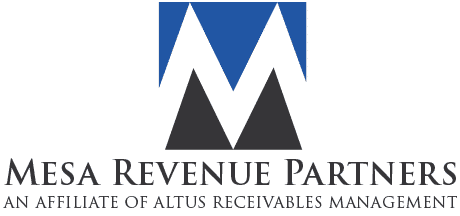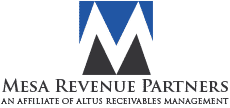Ensuring Financial Health & More Time For Patient Care
Struggling with slow payments and rising bills? Improving healthcare collections starts long before a bill goes out. From verifying insurance and benefits to estimating patient responsibility upfront, there are a few things to keep in mind to optimize cash flow in your medical practice.
But what are the best ones? What is the best way to improve healthcare collections? That’s what we are ready to answer in this article.
Stronger collections not only keep your practice financially healthy but also allow you to focus more time and energy on patient care. In this guide, our business collections attorneys will explain proven strategies on how to improve healthcare collections for better cash flow in your medical practice.
What Is Medical Debt Collection?
Medical debt collection is the process by which healthcare providers recover unpaid patient bills. Usually, providers do not rush into collections. They will wait—a few months, sometimes longer—before escalating the matter. But once the account gets handed off to a commercial collections agency, the process changes.
Once transferred, the third-party agency usually follows these actions to collect the debt:
- Reaching out to patients regarding their overdue payments.
- Providing options such as payment plans or settlement agreements.
- Notifying credit bureaus about unpaid medical debt.
- Taking legal measures when absolutely necessary.
While collecting unpaid medical debt is crucial for providers to maintain financial stability, it must adhere to legal regulations and respect patient rights.
Best Practices To Improve Healthcare Collections
Debt collection in healthcare requires a balanced approach that respects patients’ financial situations while ensuring that healthcare providers can maintain financial viability. Let’s explore the essentials to guarantee this balance:
Verify Insurance & Benefits Upfront
It sounds simple, but confirming insurance coverage early (ideally at the time of check-in) can prevent a cascade of billing issues later. Too often, claims are delayed or denied because of a mismatch in policy details or outdated information.
Patients may also assume certain treatments are covered, only to be blindsided by a bill weeks later. Offering a rough cost estimate before treatment helps manage expectations and encourages more informed decision-making.
Communicate Clear Financial Policies
Many billing complaints come down to one thing: confusion. Patients are not insurance experts, and deciphering financial responsibility from a stack of paperwork isn’t exactly intuitive.
Providers can bridge this gap by explaining costs in plain language. Financial policies should be easily accessible—shared through welcome packets, clinic websites, front desk signage, or even a quick conversation at intake.
Offer Flexible & Convenient Payment Options
Not everyone can pay a large medical bill in one go, and insisting on it can deter patients from seeking necessary care. Flexibility makes a huge difference. Accepting credit cards, offering online or mobile payment portals, and allowing for recurring payment plans gives patients breathing room.
Some practices even encourage partial payments or upfront deposits, which can reduce the risk of full nonpayment later on.
Submit Clean Claims Quickly
Speed matters. The longer it takes to send out a claim, the longer it takes to get paid. Submitting clean, error-free claims within 24 to 48 hours of service can significantly improve cash flow. This is where practice management software becomes essential, so consider them to keep the cash flowing.
Track & Address Denials Proactively
Every denial is an opportunity to improve. By analyzing trends—whether it’s missing codes, eligibility issues, or mismatched information—providers can train their staff to prevent the same errors from recurring. It’s a proactive step that turns short-term headaches into long-term efficiencies.
Monitor Key Performance Indicators (KPIs)
Finally, tracking the right metrics is essential to keeping collections on track. Pay close attention to days in accounts receivable (A/R), net collection rates, and the rate at which claims are denied and resolved. These numbers are not just for the finance department; they’re also an early warning system for operational issues and patient dissatisfaction.
Common Challenges In Healthcare Collections
Even with thoughtful systems in place, collecting payments in the healthcare world can be surprisingly difficult. Here’s a list of some of the most common issues providers face:
- Patients do not always understand what they owe: Medical bills can be confusing, especially when insurance terms and unclear pricing are involved.
- Insurance claims get delayed or denied: Coding mistakes, missing information, or eligibility hiccups can all cause a claim to be rejected.
- Billing processes are not always consistent: In some practices, the way payments are handled can vary from person to person or department to department.
- Limited payment options frustrate patients: Not everyone can write a check or pay a full balance upfront. If patients are not offered flexible or digital ways to pay, many will simply put it off or give up altogether.
- Regulatory rules make things more complicated: From privacy protections to debt collection laws, providers have to be careful about how they handle billing and communication.
- Billing staff are often overworked or undertrained: It’s easy to overlook the human toll. Staff who manage collections are juggling a lot, and without ongoing training or support, they may struggle to keep up.
When To Consider a Medical Collections Partner
Deciding whether to hire a medical collection agency isn’t always easy. Many practices prefer to handle billing in-house for as long as possible, but there are moments when outside support becomes not just helpful, but necessary.
One of the clearest signs is when the internal billing team is stretched too thin. If staff are constantly trying to keep up with phone calls, insurance appeals, and follow-ups, it may be time to explore third-party help.
Another key indicator is a growing backlog of unpaid accounts. When balances sit unpaid for 90 days or longer and continue to pile up, collections can start to slip through the cracks. A partner with specialized tools and trained staff can focus on recovering those funds while keeping the tone professional and respectful.
Denied claims are another concern. If your team is experiencing an increase in denials and lacks the resources to investigate the causes, then maybe it’s time to consider agencies that can offer insights and assist with root cause analysis.
Get The Necessary Help With Mesa Revenue Partners
If your practice is struggling with overdue accounts or rising bills, partnering with a trusted collections agency in Mesa can make all the difference. That’s why we invite you to partner up with Mesa Revenue Partners, a business collection agency specializing in professional medical collections that protect patient relationships while maximizing recovery rates.
Don’t let unpaid balances weigh your practice down! Contact Mesa Revenue Partners today and start building a healthier financial future for your practice.








